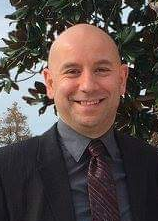Special Note: If you have a question to ask the panel ahead of time, please send your question to Panel Chair, Alvin Chin at alvin.chin@ieee.org, and we will try to have your question answered by the panelists.
Standardization for Connected and Automated Vehicles
Organizer: Dr. Alvin Chin, BMW Technology Corporation, USA
Panel Abstract: There is much research and development for Connected and Automated Vehicles (CAVs) by vehicle manufacturers, OEMs, and internet companies. However, there is a lack of technology standards on how to develop, test and validate CAVs, how to ensure interoperability and how to guarantee safety and reliability. As a result, the IEEE VTS/Automated Vehicles Standards Committee (VTS/AVSC) was formed in November 2019 to address this. In this panel, speakers from standards developing organizations, industry, research centers and academia will provide an overview of some ongoing standardization efforts of CAVs, and what the IEEE VTS/AVSC is doing.

Chair Bio: Dr. Alvin Chin is AI and Emerging Technology Researcher at BMW Technology Corporation in Mountain View, USA where his research involves exploring AI and emerging technologies for potential use cases in production at BMW. Previously, he was Senior Machine Learning Researcher at BMW Technology Corporation in Chicago where he worked on big data and machine learning for improving driving behaviour and enabling intelligent driving, studying user behavior in driving and in social networks, mining big data from the car data, and creating recommendations of items based on user profiling and context such as predicted destinations and trips, to provide intelligent user and car experiences. Prior to BMW, he was Senior Researcher at Microsoft and Nokia in Beijing working on big data and analytics for browsing behavior in Xpress Browser, and Senior Researcher at Nokia Research Center working on mobile social networking in particular proximity social networks for inferring social activity, collaboration and recommendation in real physical environments. Dr. Chin has authored more than 30 publications and 10 patents including those pending. He has a Bachelors and Masters degrees in Computer Engineering from the University of Waterloo and a PhD in Computer Science from the University of Toronto. Dr. Chin is a member of various program committees such as ACM KDD, ACM Hypertext, IEEE CPSCom, ACM Ubicomp, ACM CSCW, and IEEE VTC. He is an ACM Senior Member and IEEE Senior Member. Dr. Chin is also active in the Chicago community, as Chair of ACM Chicago, Chair of the IEEE VTS Chicago Chapter, and Chair of the IEEE Computer Society Chicago Chapter. He is the Publicity Co-Chair for IEEE Vehicular Technology Conference-Fall 2020 and Secretary of the IEEE VTS/Automated Vehicles Standards Committee. Alvin can be reached at alvin.chin@ieee.org and his website is http://www.alvinychin.com.
___________________________________________________________
Each panelist has 15 minutes to present their talk, followed by 20 min Q&A. All talks will be pre-recorded and played during the panel to attendees. Q&A will be managed by chat, but the Moderator will ask each panelist a question of which the panelist can pre-record his/her answer. All questions on the Q&A chat will be sent and seen by the panelists, and they can answer at their convenience which will be shown in the chat.
Panelists:

Alex Wyglinski, Worcester Polytechnic Institute, Past President of IEEE VTS
Title: Connected and Automated Vehicles from an Academic Perspective
Bio: Dr. Alexander M. Wyglinski is an internationally recognized expert in wireless communications, cognitive radio, 5G, connected vehicles, software-defined radio, dynamic spectrum access, satellite communications, vehicular technology, wireless system optimization and adaptation, autonomous vehicles, and cyber-physical systems. Dr. Wyglinski is a Full Professor of Electrical and Computer Engineering and a Full Professor of Robotics Engineering (courtesy appointment) at Worcester Polytechnic Institute, Worcester, MA, USA, as well as the Director of the Wireless Innovation Laboratory (WI Lab). Dr. Wyglinski is very active in the technical community, serving on the organizing committees of numerous technical conferences and several journal editorial boards. These activities include serving as the General Co-Chair for the 82nd IEEE Vehicular Technology Conference in Fall 2015, as well as Technical Editor of the IEEE Communications Magazine. From January 2018 to December 2019, Dr. Wyglinski served as the President of the IEEE Vehicular Technology Society, an applications-oriented society of approximately 5000 members that focuses on the theoretical, experimental, and operational aspects of electrical and electronics engineering in mobile radio, motor vehicles, and land transportation. Throughout his academic career, Dr. Wyglinski has published approximately 45 journal papers, over 120 conference papers, nine book chapters, and three textbooks. He is currently being or has been sponsored by organizations such as The MathWorks, Toyota InfoTechnology Center U.S.A., Defense Advanced Research Projects Agency, Naval Research Laboratory, MITRE Corporation, MIT Lincoln Laboratory, Office of Naval Research, Air Force Research Laboratory Space Vehicles Directorate, and the National Science Foundation. Dr. Wyglinski is a Senior Member of the IEEE, as well as a member of Sigma Xi, Eta Kappa Nu, and the ASEE.

Ricardo de Castro, German Aerospace Center (DLR) and Chair of VTS/AVSC
Title: Overview and Recent Activities of the IEEE VTS/ Automated Vehicles Standards Committee
Abstract: Automated Vehicles (AVs) pose great opportunities to improve safety, efficiency and energy consumption of transportation systems. However, this technology is still in its infancy. There is a lack of standardized best practices on how to develop, test and validate AVs, how to ensure interoperability and how to guarantee safety and reliability. To address these gaps, the IEEE VTS Automated Vehicles Standards Committee was created at the end of 2019. In this talk, we will provide an overview of the activities and standardization efforts of this new committee.
Bio: Ricardo de Castro received the Licenciatura and Ph.D. degrees in electrical and computers engineering from University of Porto, Faculty of Engineering, Portugal, in 2006 and 2013, respectively. During 2007-2008 he was an entrepreneur with the WeMoveU project, targeting the development of powertrain control solutions for lightweight electric vehicles. Since 2013, he has been with the German Aerospace Center (DLR), Institute of System Dynamics and Control (SR), where he is developing enabling technologies for electric mobility and automated driving.
He has been an expert evaluator for the European Union, editor of IEEE Transactions on Vehicular Technology, associate editor of IEEE Access, guest editor of IEEE Vehicular Technology Magazine and co-chair of the Technical Program Committee of the IEEE Vehicle Power and Propulsion Conference 2020. He is currently serving as chair of the IEEE VTS Automated Vehicles Standards Committee.
Ricardo de Castro is also a Senior Member of the IEEE and the author of three patents and 60 papers in international journals, conferences and book chapters.

Jack Weast, Intel and Chair of IEEE P2846 Working Group
Title: State of the State of AV Assurance
Abstract: In this talk, Jack will provide a ‘State of the State’ regarding the development of a safety assurance framework for Automated Vehicles and a call to action for industry, researchers, and governments on what must be done to enable commercial deployment of AV’s.
Bio: Jack Weast is a Senior Principal Engineer at Intel and Vice President for Automated Vehicle Standards at Mobileye. In this role, Jack leads a global team working on AV safety technology and the related standards that will be needed to understand what it means for an AV to drive safely.
In his over 20-year career at Intel, Jack has built a reputation as a change agent in new industries with significant technical contributions to a wide range of industry-first products and standards in industries that are embracing complex high performance heterogeneous computing for the first time. With an End to End Systems perspective, Jack combines a unique blend of embedded product experience with a knack for elegant System and Software design that will accelerate the adoption of Autonomous Driving.
Jack is the co-author of “UPnP: Design By Example”, and is the holder of over 40 issued patents with dozens pending. Jack is an Adjunct Professor at Portland State University where he was recently inducted into the Portland State Maseeh College Academy of Distinguished Alumni in recognition of Jack’s achievements, leadership and service to the Engineering and Computer Science Profession, as well as to Society. Outside of work he is a classical pianist and never turns down an opportunity to take the karaoke stage.

Kirsten Matheus – BMW
Title: Automotive Ethernet 2020
Abstract: The automotive industry is one of the last to embrace Ethernet communication. 2008/2013 the industry saw the first introduction of 100BASE-TX/T1, with the roll out into most car manufacturers being completed just now. A huge eco-system has evolved around Ethernet, as well in physical layer variants as in supporting aspects like tools. However, the true changes that Ethernet communication allows for, like changing the way we develop cars by providing the right enabling infrastructure for a software defined car, yet needs to be fully understood before it can be properly exploited.
Bio: Dr Kirsten Matheus is engineer and economist. For the last 16 years, she worked in the automotive industry; 10 of which at BMW. At BMW, she is responsible for the in-vehicle networking strategy. This entails ensuring the availability of suitable in-vehicle networking technologies ahead of time. In this context she successfully introduced Ethernet as a networking technology into the automotive industry. In her opinion, only open standards provide the basis for long term sustainability of networking technologies. She and her former colleague Thomas Königseder describe their experiences, background and technical concepts behind the use of Ethernet in the automotive industry in a book titled “Automotive Ethernet”
